| | Trump’s ‘Big Beautiful Bill’ raises US debt fears, AI sparks a hiring spree and a wider backlash, an͏ ͏ ͏ ͏ ͏ ͏ |
| |  | Flagship |  |
| |
|
The World Today | 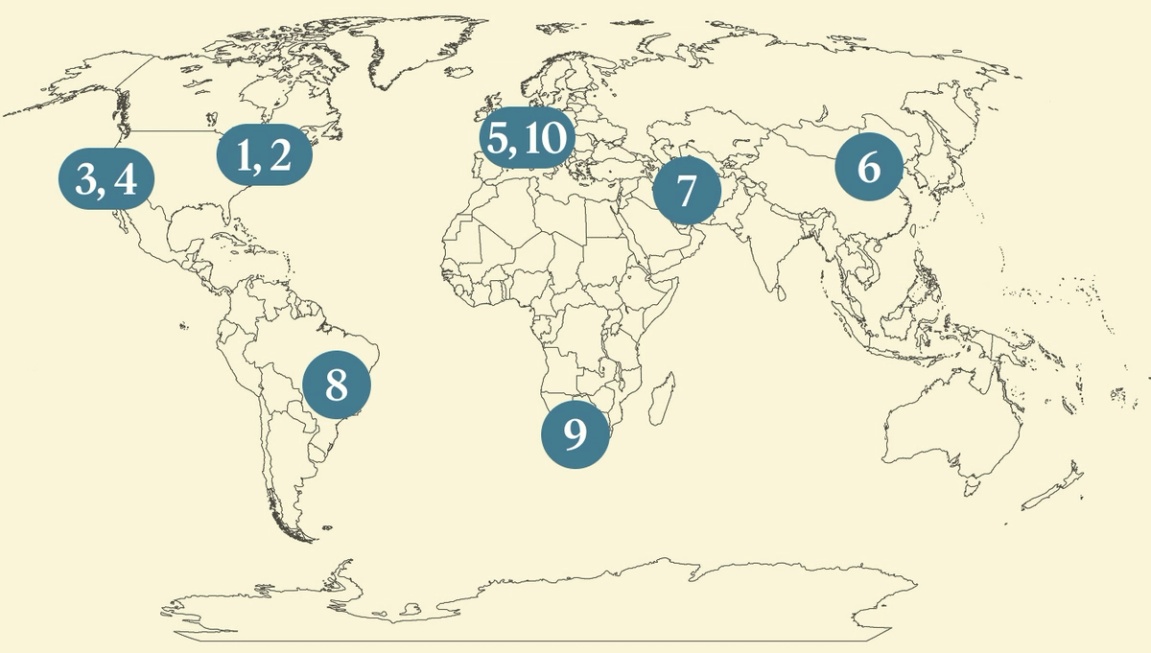 - US debt growth fears
- Digital trade negotiations
- Meta’s AI hiring spree
- AI jobs backlash
- Europe hit by heat wave
- China widens military purge
- Iran open to nuclear talks
- Pro-Bolsonaro protests
- Starlink looks to Africa
- France’s new smoking ban
 The London Review of Substacks, and a Victorian-era delicacy at Wimbledon. |
|
Worries over growing US debt |
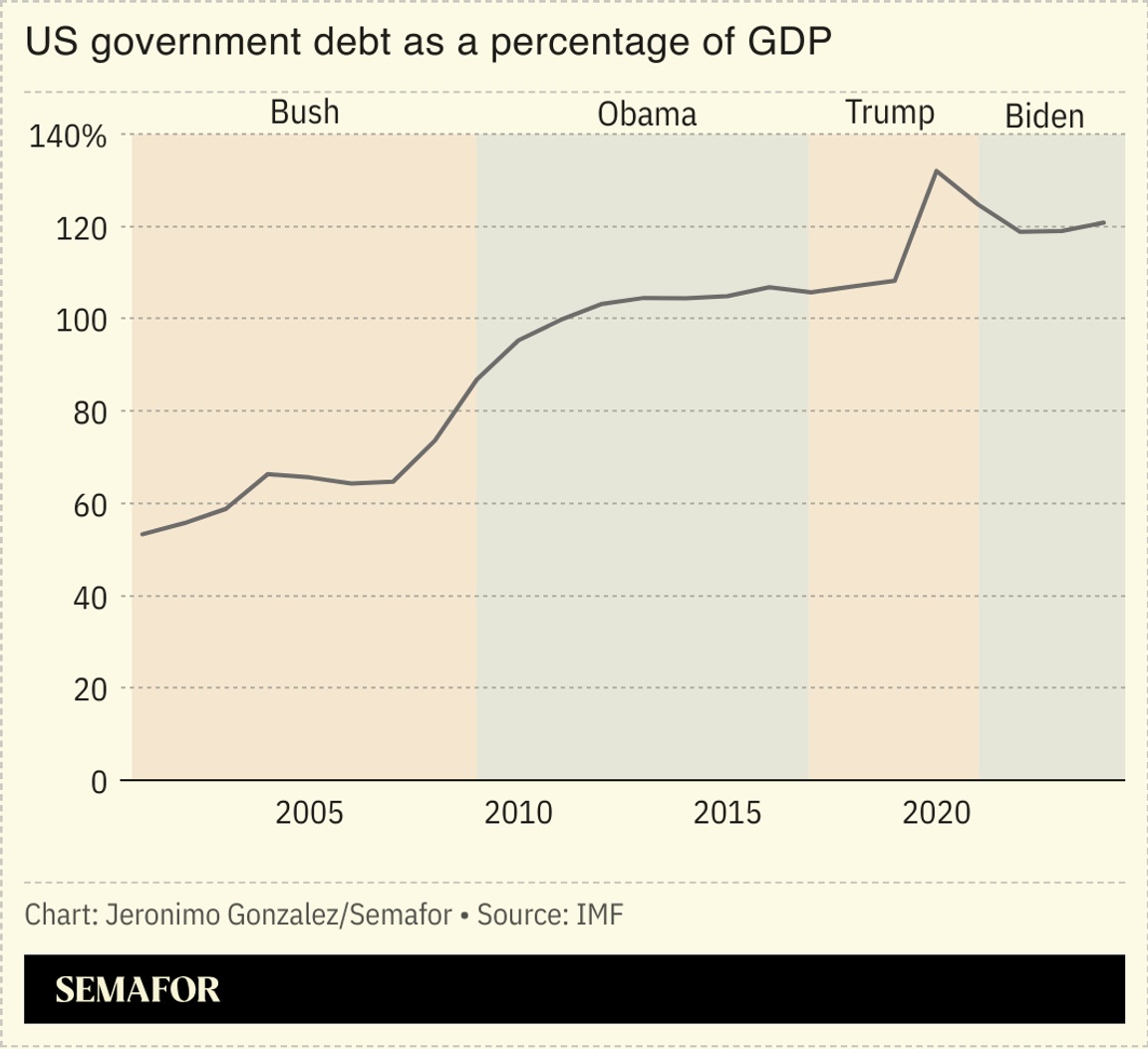 A mammoth spending program being debated by the US Senate this week will swell the country’s debt and threaten its financial standing, analysts warned. Some 20 cents of every dollar taken in tax revenue is now allocated to debt servicing, and the One Big Beautiful Bill Act is forecast to grow the deficit by a further $3.3 trillion over a decade. More than 90% of economists in a Financial Times survey said they were concerned about the haven status of dollar-denominated assets, in part because of the planned fiscal expansion. Republicans are wavering on the issue: One GOP lawmaker told Semafor the Senate was deadlocked, while former presidential adviser Elon Musk was more pointed, calling the plan “utterly insane.” |
|
Digital taxes at center of trade talks |
 US Commerce Secretary Howard Lutnick. Kent Nishimura/Reuters US Commerce Secretary Howard Lutnick. Kent Nishimura/ReutersDigital taxes are proving a stumbling block in Washington’s negotiations with major trading partners. Canada said it would rescind its digital services tax in order to restart talks after they were canceled by US President Donald Trump, who described the tax policy as a “direct and blatant attack.” Washington views digital taxes as non-tariff barriers which disproportionately target US tech giants, and the issue has also proved a sticking point with the European Union: Brussels has indicated it may soften the implementation of its own digital rules, but has faced pushback from European parliamentarians as well as its own competition chief. |
|
Meta looks to poach AI talent |
 Carlos Barria/File Photo/Reuters Carlos Barria/File Photo/ReutersMeta boss Mark Zuckerberg has reportedly put together a secret list of top artificial intelligence engineers he hopes to recruit and is willing to spend hundreds of millions on hiring. Meta’s Llama AI model underperformed expectations at its April launch, and Zuckerberg wants to catch up. The world of ultra-elite AI talent is small, and Zuckerberg is already picking off big names, The Wall Street Journal reported: Meta recently recruited four experienced OpenAI researchers and apparently offered $100 million pay packages to some names on his list. Zuckerberg is looking to raise $29 billion to fund his AI push, the Financial Times reported. |
|
 Chris J. Ratcliffe/Reuters Chris J. Ratcliffe/ReutersA backlash against artificial intelligence is gathering pace among workers after major companies warned the technology would take away jobs. Amazon’s CEO recently said “we will need fewer people,” while Duolingo, Klarna, Salesforce, and Shopify have said similar things, and the tech industry is laying off staff despite strong economic performance. AI is reported to be writing around 50% of some tech firms’ code, and one AI boss said half of entry-level white-collar jobs could soon be lost. There is now an “ambient animosity” toward the technology, a tech writer told WIRED. A series of lawsuits are challenging AI’s use of copyrighted material and its use in creative processes, and US unions are increasingly mobilizing against robotics in physical work. |
|
Europe gripped by heat wave |
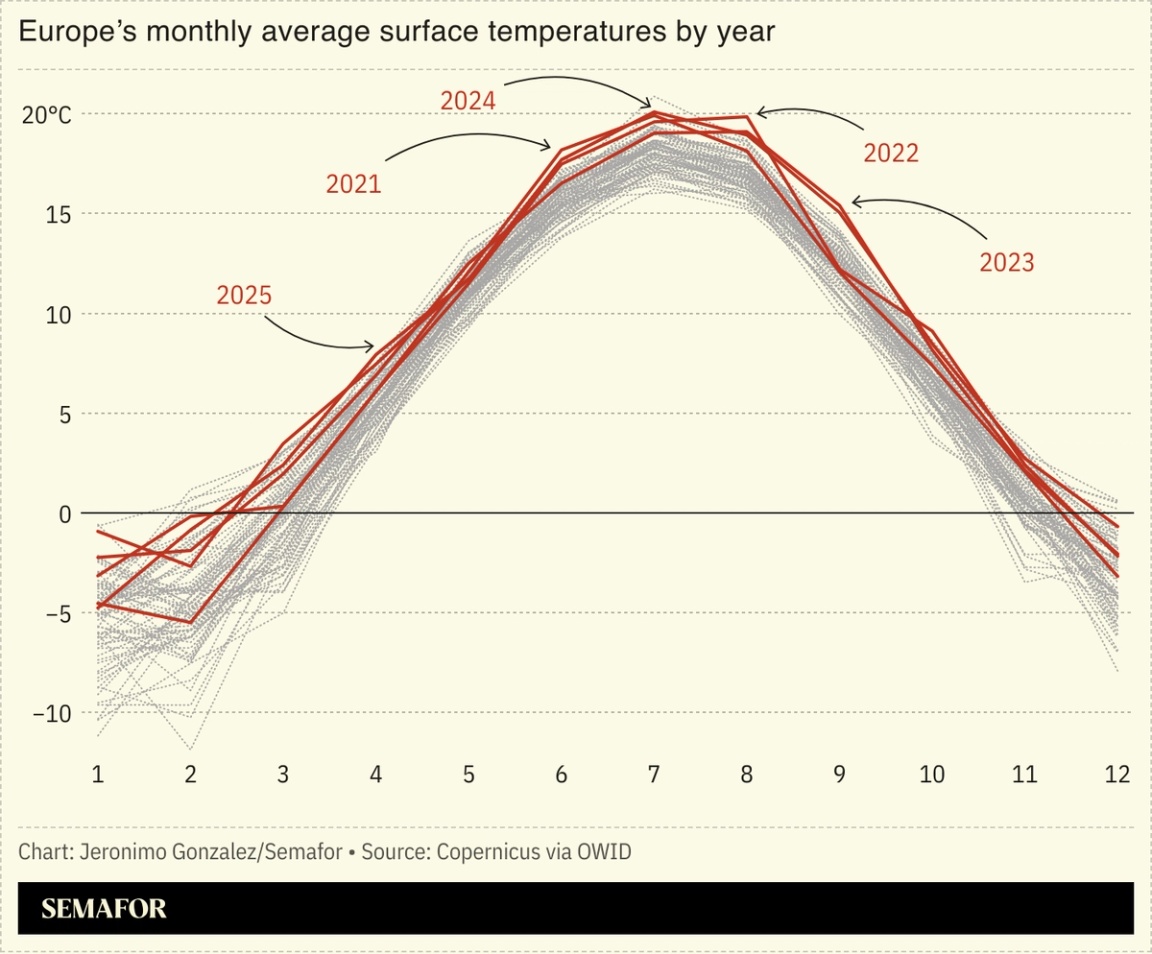 A dangerous heat wave gripping Europe led to record temperatures and weather warnings across the continent. France, Greece, Italy, Portugal, and Spain are experiencing the most extreme conditions, caused by a high-pressure “heat dome” over Western Europe, with southwest Spain suffering a record 114.8°F (46°C). Europe is the world’s fastest-warming continent, partly due to its proximity to the Arctic — the polar region is seeing temperatures rise four times faster than global averages — and, paradoxically, to its success in reducing pollution: Particulates in the atmosphere masked some of the warming effect of carbon emissions, and as the air has become cleaner, that masking has been reduced. |
|
China widens military purge |
 Maxim Shemetov/File Photo/Reuters Maxim Shemetov/File Photo/ReutersChinese leader Xi Jinping extended his purge of the upper echelons of China’s armed forces. A senior official was removed from the country’s top military command body, the Central Military Commission, while the navy chief of staff and a top nuclear scientist were fired from China’s legislature: In all, eight officials were removed, more than a dozen generals and defense industry figures have been investigated for corruption, and the vice-chair of the CMC has not been seen publicly for months. Xi once sought to single out officials to deter graft in the wider ranks — killing the chicken to scare the monkeys, as Beijing put it. Now, one analyst said, he is “killing the monkeys.” |
|
 Majid Asgaripour/WANA via Reuters Majid Asgaripour/WANA via ReutersIran said it was willing to engage in discussions over its nuclear program, but only if Washington rules out further attacks. Israel and the US struck Iran’s uranium enrichment sites this month, although the extent of the damage is unclear. Iran’s Deputy Foreign Minister Majid Takht-Ravanchi told the BBC that Tehran wanted to return to negotiations over its atomic program, which had restarted before the Israeli-US raids. The attacks have sparked paranoia within the regime: Security forces have arrested hundreds of alleged Israeli spies and dissidents, The Wall Street Journal reported, and at least six people have been executed since the war began. Locals fear that the crackdown is an effort to “silence dissent and tighten control,” according to the BBC. |
|
 Get an independent Swiss view on world events with the NZZ Geopolitics newsletter — their team of global correspondents and expert Swiss reporters deliver incisive analysis and deep insight into geopolitics and the world economy. Subscribe for free. |
|
Pro-Bolsonaro protest in São Paulo |
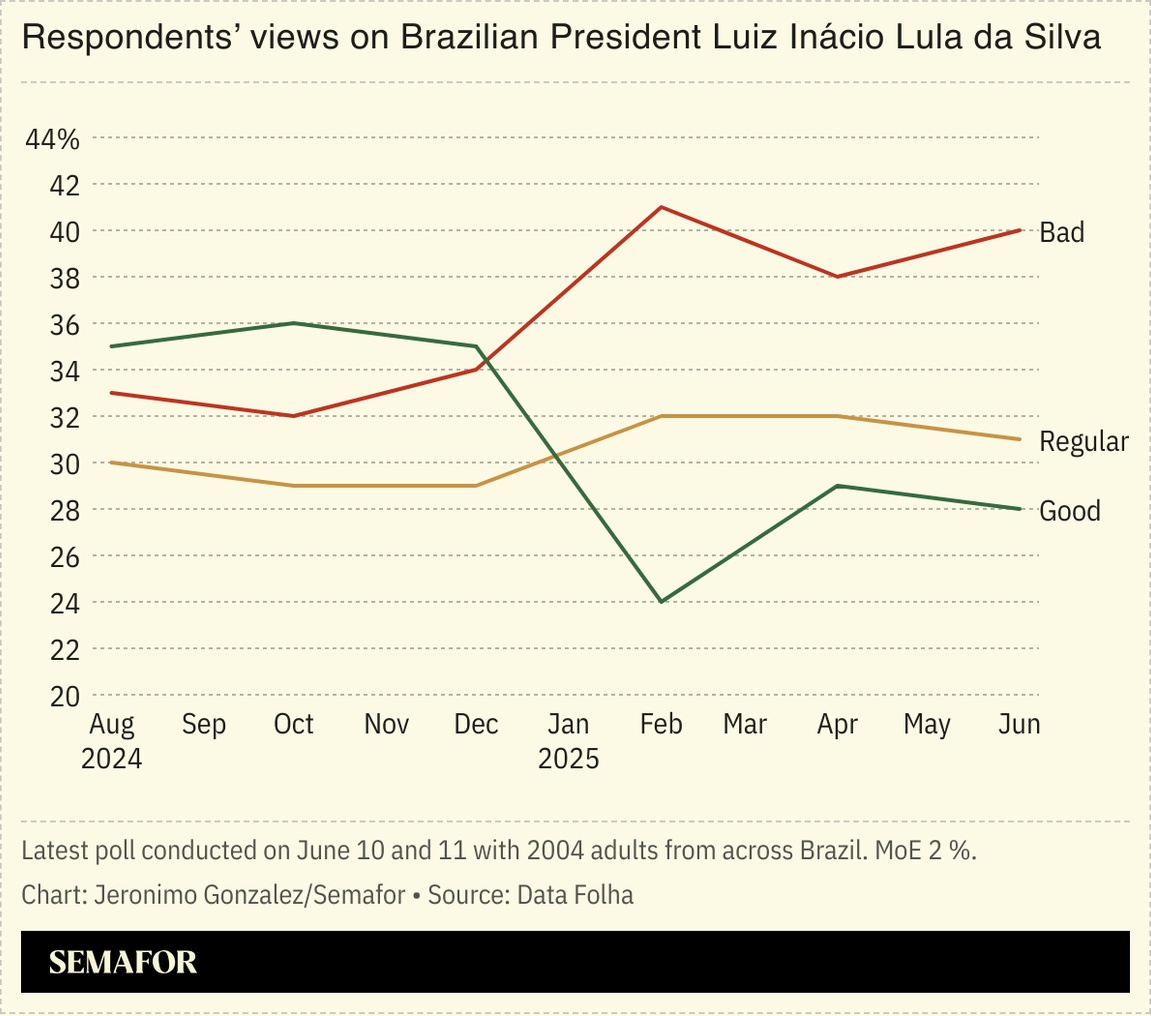 Thousands of supporters of former Brazilian President Jair Bolsonaro demonstrated in São Paulo against his Supreme Court prosecution. Already banned from running for office for eight years, the rightist leader could face up to 12 years in prison if found guilty of having led a coup plot. Bolsonaro has vowed to run in next year’s election, claiming US President Donald Trump will help him overturn his ban, albeit without providing details. Some on the Brazilian right fear Bolsonaro’s chokehold on his party may prevent it from winning next year’s election, despite the growing unpopularity of incumbent President Luiz Inácio Lula da Silva, whose economic mismanagement and support for Russia have sent his approval ratings to a record low. |
|
Starlink looks to expand in Africa |
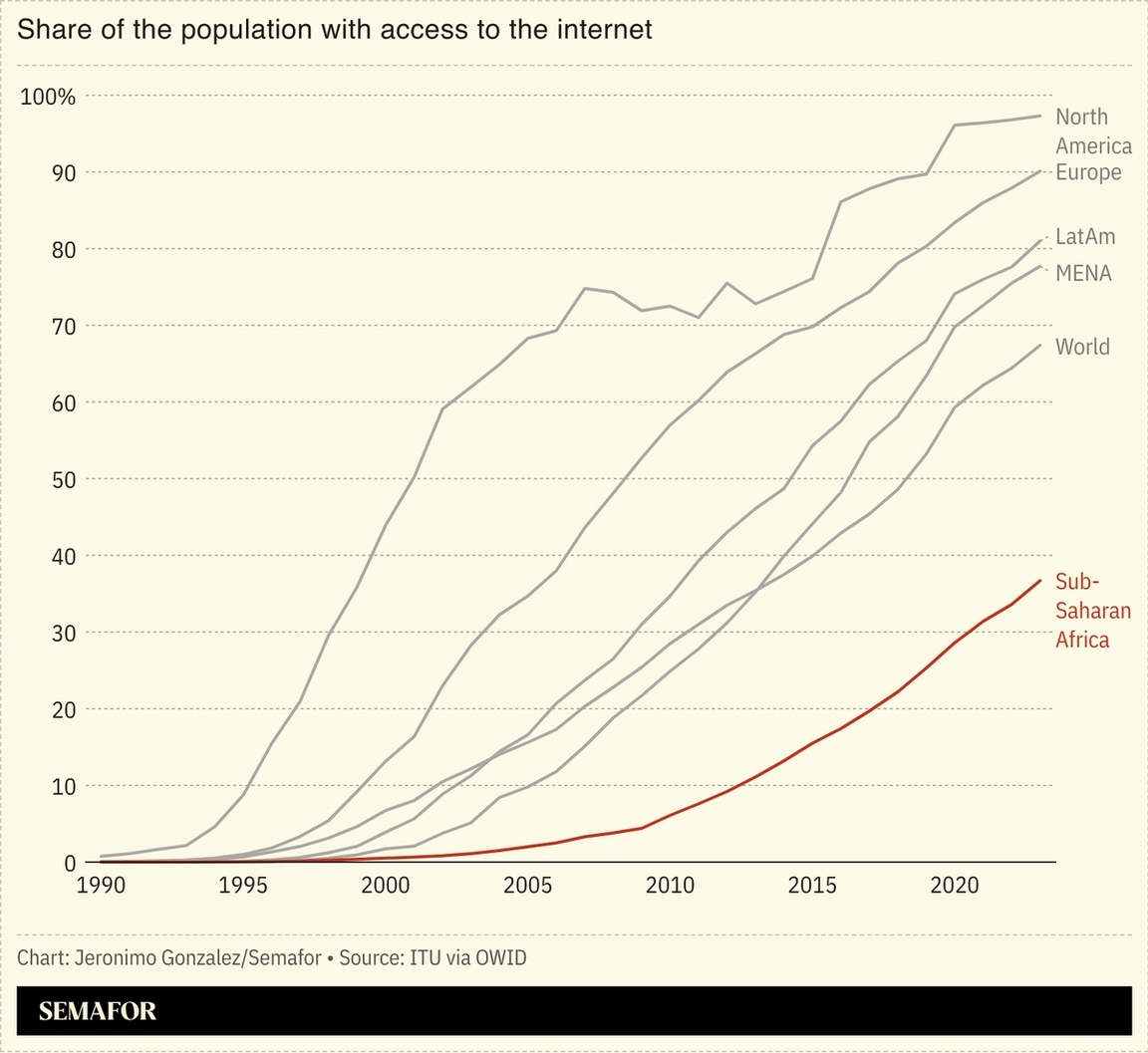 Elon Musk’s Starlink will invest $113 million to provide satellite internet services in South Africa as it looks to increase its presence on the continent. Under the proposed deal, 16 countries could gain access to Starlink’s internet services, Business Day reported. But questions remain: Musk has rejected giving up equity in order to meet Pretoria’s Black empowerment rules, which the billionaire has called “openly racist,” and the government is yet to make a decision on whether to award Starlink an operating license. The expansion of satellite internet nevertheless means many in Africa may skip traditional broadband internet services entirely in favor of satellite connections: Just 36% of sub-Saharan Africa’s population has internet access, roughly half the global average. |
|
|